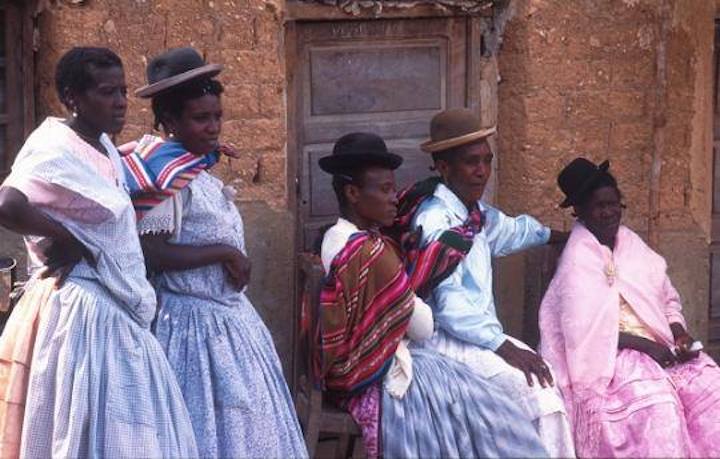Did you know Afro-Bolivians are still around today?
Landlocked between Peru, Chile, Argentina, and Brazil, Bolivia is often ignored by its South American neighbors, but it’s truly a gem. There are majestic mountains, stunning rainforests, and rich culture.
Located outside the Capital City of La Paz is an area known as the Yungas Region. It’s not an easy area to access because of the jungles and rivers, but it’s home to the Afro-Bolivian community: one of the last remaining tribal kingdoms in the world.
The Afro-Bolivians are descendants of African slaves during the Spanish Empire. The more than 2,000 people in the kingdom are mainly farmers who grow cocoa, coffee, and more. In Mururata, a village of around 350 people, is the center of the kingdom where Julio Bonifaz Piñedo is the king.
It is believed that the natives thought that darker skin was more attractive, which is why they were impressed with the skin of the Africans when they first began arriving to Bolivia. For this reason, it is no surprise that many of the Afro-Bolivians would intermarry with the Aymara, adopt many of their cultural elements such as their style of dressing, and even become an Aymaran speaking subculture.
Afro-Bolivian Royalty
According to the latest Bolivian census in 2012, more than 23,000 people identify as Afro-Bolivians and most of their roots and even King Pinedo are in the Yungas.
The Afro-Bolivian Royal House is referred to as a ceremonial monarchy. It wasn’t until 2007 that the tribe was officially recognized by the Bolivian state as a kingdom and Piñedo was finally acknowledged as king— despite a history that spans more than 500 years.
Piñedo discovered that he was a descendant of Bonifaz, a tribal king from Senegal. Before Bonifaz was Prince Uchicho, who is regarded as the founder of the Afro-Bolivian monarchy.
The trajectory of Prince Uchicho’s life changed after he was enslaved by the Spanish. He was a prince of the ancient Kingdom of Kongo, a kingdom that has a history from the early 1300s and survived until 1914. When the kingdom came in contact with Portuguese traders, it became a source of African slaves.
Prince Uchicho became enslaved in Bolivia after a struggle for the throne with competing sons and chiefs. When he arrived, he was quickly recognized by other slaves because of his body decoration. The royalty of the Kongo Kingdom was known for their royal tribal markings on their torso to set them apart from others.
Uchicho was chosen as the leader among African slaves and recognized as a king in their new home of Bolivia in 1823, which ultimately, began the lineage of the Afro-Bolivian monarchy. He was succeeded by his son, Bonifaz Pinedo: a name he took from the plantation owner. It’s the name still used by the Afro-Bolivian royalty today.
Julio Piñedo is a different kind of king. He isn’t dressed in a silk robe giving out orders. In fact, he’s a farmer and like so many others in Mururata, you will find him tending to his crops.
King Piñedo and Queen Larrea have a son, Prince Rolando— a law student at the Universidad de Los Andes in La Paz. His major is reportedly influenced by his father’s impact and potential role as the future king.
“I would like to keep pushing forward to make the Afro-Bolivian community more recognized and visible, the way my father has done until now,” he said in a statement.
